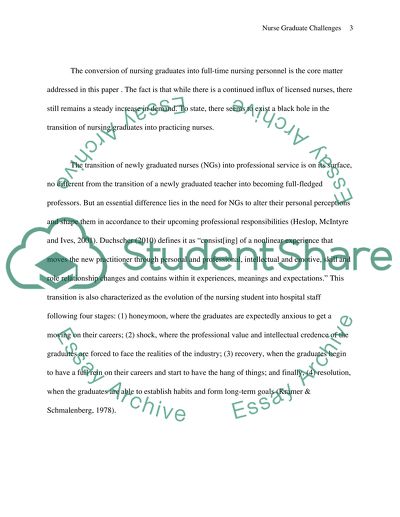Cite this document
(“Nurse Graduate Challenges Essay Example | Topics and Well Written Essays - 2500 words”, n.d.)
Retrieved de https://studentshare.org/nursing/1391646-discuss-the-challenges-a-graudate-nurse-hope-to
Retrieved de https://studentshare.org/nursing/1391646-discuss-the-challenges-a-graudate-nurse-hope-to
(Nurse Graduate Challenges Essay Example | Topics and Well Written Essays - 2500 Words)
https://studentshare.org/nursing/1391646-discuss-the-challenges-a-graudate-nurse-hope-to.
https://studentshare.org/nursing/1391646-discuss-the-challenges-a-graudate-nurse-hope-to.
“Nurse Graduate Challenges Essay Example | Topics and Well Written Essays - 2500 Words”, n.d. https://studentshare.org/nursing/1391646-discuss-the-challenges-a-graudate-nurse-hope-to.


